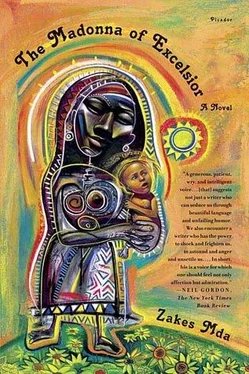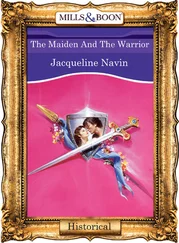Viliki had allocated himself a second house, which he was renting out to some houseless family. He felt that as the mayor, he deserved a second house in order to supplement his meagre income from the council. That was the source of one of the Pule Siblings’ many disagreements. Popi felt that it was immoral for Viliki to give himself a second house when there were still so many people on the list, desperately waiting for government-subsidised houses. It had been immoral, she felt, for the councillors to have allocated themselves even the first houses. She had heard that some of them had even allocated houses to girlfriends who did not qualify for government subsidies. And to their mothers and grandmothers. As leaders of the struggle, Popi felt, they should have led by example. They should have had their names on the waiting list like everyone else. Or they should have used their council stipends to build their own houses, just as she herself was doing, instead of dishing out free government houses to themselves. They should have sacrificed for the benefit of their fellow citizens.
The members of the Movement in the council laughed off Popi’s concerns and said: “We sacrificed enough when we fought for liberation. Now it is time for us to eat the fruits of our labour.”
Of course, these debates did not take place in the council chamber. They happened privately when Viliki visited Niki’s shack. Or when Popi visited Viliki’s house, whose lounge now had two sofas, a coffee table and a big colour television. Or when the members of the Movement held their party caucus.
The first disagreement between the Pule Comrades had occurred after the very early sessions of their first year on the council. Popi had moved that the council’s minutes and agenda should no longer be in Afrikaans, but in English. The three National Party members and Tjaart Cronje of the Freedom Front had objected in the strongest terms.
“We all speak Afrikaans here,” Tjaart Cronje had said, standing up and glaring at Popi. “Our proceedings are in Afrikaans. Why should the minutes and the agenda be in English?”
“Maybe all our proceedings should be in English instead of Afrikaans,” Popi had said, looking sneeringly at Tjaart Cronje.
“Instead of eliminating Afrikaans,” Lizette de Vries had suggested, “we should rather say that our proceedings should be in Sesotho as well. We all speak Sesotho in Excelsior, don’t we?”
“It is a communist plot to eliminate the Afrikaner from the face of South Africa,” Tjaart Cronje had cried. “This is why the Afrikaner needs his own homeland.”
“I am sure your leader will deal with the question of your homeland in Parliament,” Viliki had said.
“Why don’t we give him his homeland?” Popi had asked. “Why don’t he and his type just disappear into their pie-in-the-sky homeland?”
“No one speaks English in Excelsior,” Tjaart Cronje had observed quietly, as he resumed his seat. He had come to the conclusion that Popi, of all the councillors from the Movement, was bent on needling him. He was not going to give her any further opportunity to enjoy herself at his expense.
“We’ll just have to learn English then,” Popi had said with finality.
The members of the Movement had cheered and applauded.
The council had adjourned that afternoon without resolving the matter. That evening, Popi had gone to Viliki’s house. She had found him watching a soap opera on his big colour television.
“You didn’t express any views on Afrikaans this afternoon,” Popi had said accusingly.
“Come on, Popi,” Viliki had pleaded, “I am watching Generations . Can’t we talk about this some other time?”
“No, we must talk about it now,” Popi had insisted. “We are voting tomorrow and we of the Movement want to know where our Mayor stands on this crucial issue.”
“You know, Popi, Tjaart was right. No one knows any English here.”
“Tjaart was right? Is it you who is saying this, Viliki? You who taught me that in 1976, students died in Soweto because they did not want to be taught in Afrikaans?”
“It was being forced on them. They were right to fight against it. But this is another world and another country. It is no longer the country of 1976.”
“It is another country only if you live in your own dreamland. In South Africa, Afrikaans is still the language of the oppressor.”
“We have eleven official languages in this country. Afrikaans and Sesotho are two of them. And both are spoken by the people of Excelsior — black and white.”
“English is an official language too. Afrikaans is the language of the oppressor!”
‘Afrikaans cannot be the language of the oppressor. It is the language of many people of different colours who were themselves oppressed. Even in its origins it was not the language of the oppressor. The oppressor appropriated it and misused it. The slave masters’ language was Dutch. The slaves took that Dutch and used it in their own way, adding structures and words from their own original languages. the languages of the Malay people. of the Khoikhoi people. of many other people. Afrikaans was a hybrid. a creole spoken by the slaves. The slave masters took it and made it their own. As far as I am concerned, today’s coloured people have more right to the Afrikaans language than the people who call themselves Afrikaners. The true Afrikaners are the coloured people.”
Popi could not counter this argument. She knew nothing of the things Viliki was jabbering about. She had often been called a coloured by those who were more polite than those who called her boesman. Yet she did not see how on earth she could have a right to the language of the oppressor. How could she be labelled a true Afrikaner? She had stomped around the small room and screamed at her brother: “Rubbish! Afrikaans is the language over which people died! And tomorrow you’d better vote with the rest of the comrades to abolish it from the council chamber.”
“I am not voting,” Viliki had said, not bothering to hide his relief. “I’ll only have a casting vote if there is a tie.”
The following day, Popi’s motion had been passed. Five ayes and four nays. Viliki consoled himself that he had had no part in the foolish decision.
Another spat among the Pule Siblings blew up when Sekatle, the rich businessman who had worked for “the system” before liberation, applied to join the Movement. There were celebrations in the ranks of the Movement, rejoicings that Sekatle had at last seen the error of his ways. But Viliki objected. He said Sekatle was nothing but an opportunist. He was joining the Movement, not out of conviction, but for what he could gain from it financially.
It seemed that Viliki was taking an opposing view to that of the Movement on too many issues. Had his mayorship run to his head? Did he now think he was bigger than the Movement?
“Sekatle may be a scoundrel, Viliki,” said Popi, “but he is donating a sizeable sum of money to our branch to carry out the activities of the Movement.”
“That’s what I am saying, Popi,” said Viliki. “He thinks he can just buy his way into the Movement after doing all those filthy things against our people. He is the man who sold me out. Because of him, I was tortured by the Boers for days on end.”
“Where is your spirit of reconciliation, Viliki?” Popi asked. “We forgave the Boers who oppressed and killed us for three hundred years. We are reconciling with them now. Why can’t we reconcile with our own people too?”
Reconciliation won the day, and Sekatle became a member of the Movement in good standing.
Viliki gave in, and focused on his work as the mayor of Excelsior.
One of the greatest achievements of his council was the electrification of Mahlatswetsa Location. Every dwelling was wired up, even shacks like Niki’s. Families threw away their paraffin lamps, and kept their candles only for the days when there were power failures.
Читать дальше












